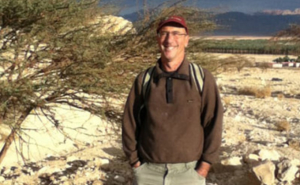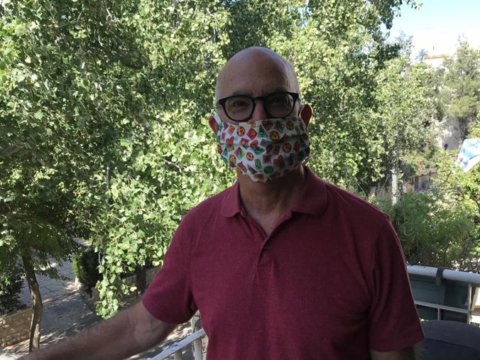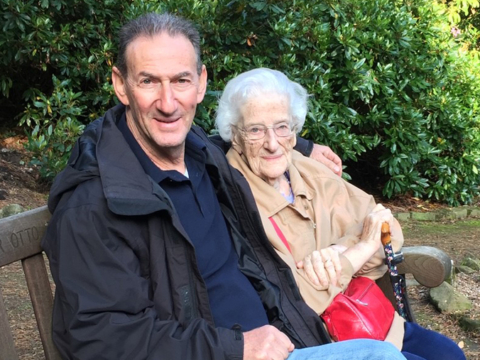Desert blooming
What’s your favorite Jewish holiday? Bill thinks Tu Bi’Shvat has a lot going for it. Admittedly, he didn’t enjoy the day while growing up in Washington DC. “We were told that our tradition was to plant trees” and celebrate the renewal of nature but “outside there was snow on the ground. The timing was absurd.” And working the land wasn’t much of a Jewish pastime in his neighborhood. “As a child, I knew that Jews study and we eat symbolic foods. But I never saw a Jew planting a tree.”
It was in Israel’s harsh desert that Bill came to love Tu Bi’Shvat. It’s an ‘ideal Zionist holiday” because “here in Israel we can really understand what it means to work and live on the land.” He lives on Kibbutz Ketura in the southern Arava where, if you’re going to plant a tree, winter is the time to do it. Tu Bi’Shvat on the kibbutz it is a time of connecting with the land, with the cycles of the year and with each other. There is something powerful about being with everyone in your community, “digging a hole next to a stapling, and placing it in the ground. It’s a statement about life and belonging.”
Environmentalism is a way of life on Kibbutz Ketura. Its members have been a major influence on Israel’s Green movement. The kibbutz runs a center that brings together Israelis, Jordanians, Palestinians and others to study environmental issues because, especially in this part of the world, “nature has no borders.”
Bill, a tour educator, is passionate about all of Israel’s nature but it’s the desert that is home. “It has become part of who I am.” He believes that to live in the desert, you must become its ally. The kibbutz’s economy is based around the realization that what “we have in the desert is sunshine and lots of it. We’re partners in providing solar energy to the south of Israel. We’re involved in extracting nutrients from algae. And we grow dates. All of these enterprises depend on excessive sunshine.”
David Ben-Gurion’s dream was to make the desert bloom. Bill sees the kibbutz as updating this vision for 2018. “Today, we understand that it is human hubris to try to force the desert to grow things that don’t belong here. It won’t work. The desert is too powerful and too big. Our efforts will only succeed if we work with the desert, not try to conquer it.”
Bill is excited about this Tu Bi’Shvat when the kibbutz will plant date trees and enjoy a celebratory seder. “It’s imperative in the 21st century that everyone has contact with and love for nature. When we plant trees, we’re returning to the land but we’re also returning to ourselves.”







